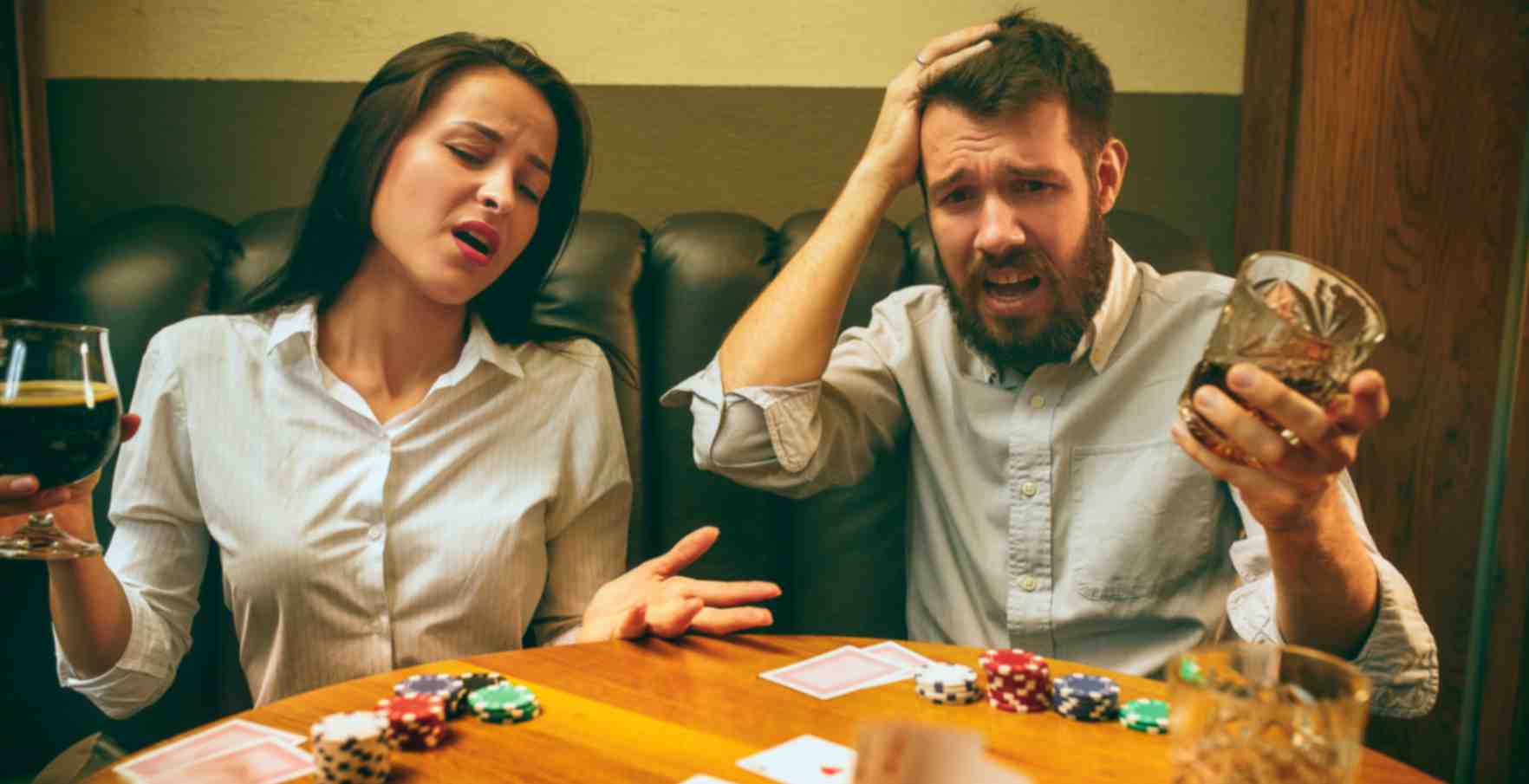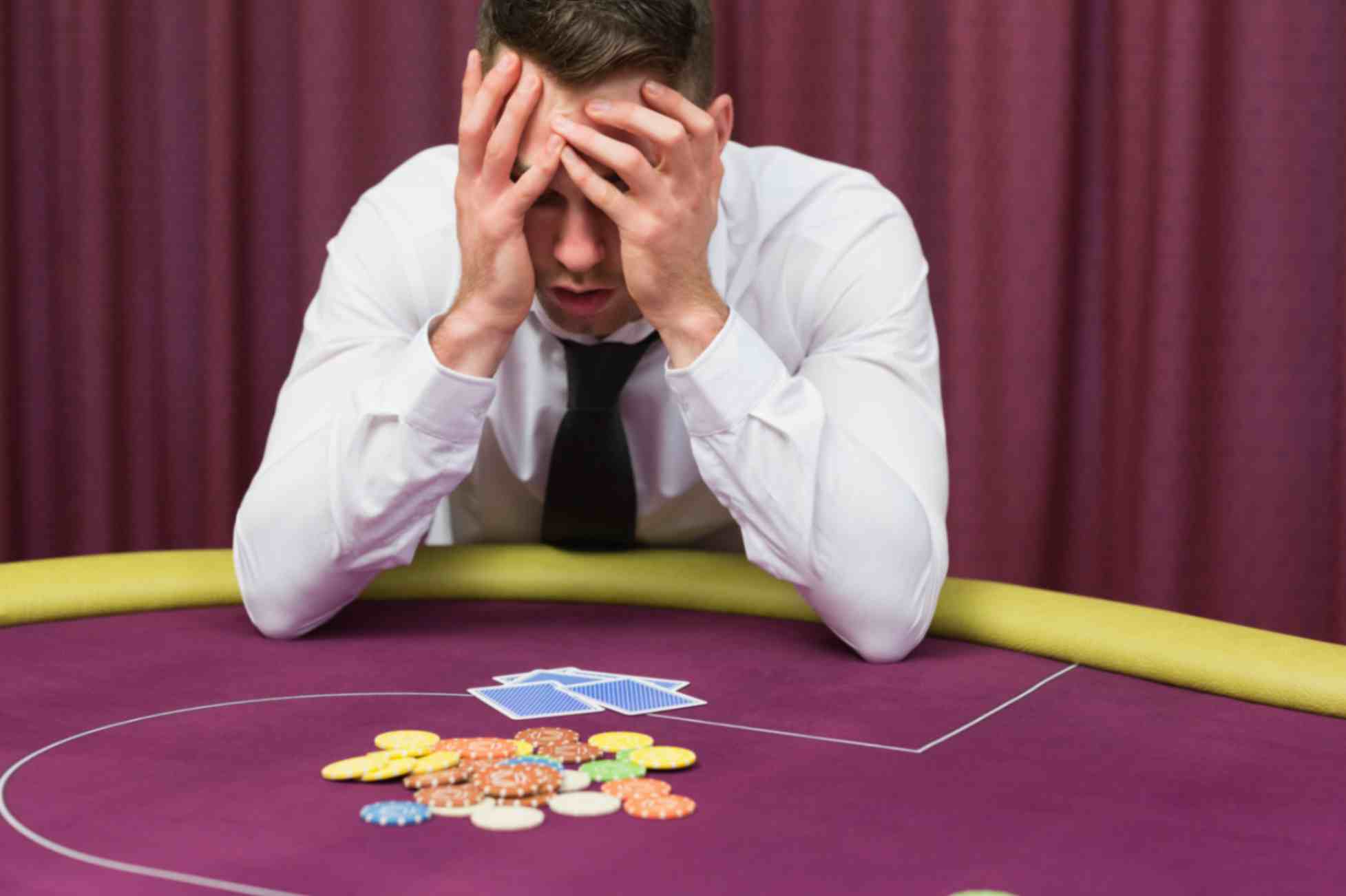Table games are more than just a chance to win money; they also offer a glimpse into various personalities. From strategic masterminds to social butterflies, each player brings their unique style to the table. Understanding these personality types can add an extra layer of fun to your gaming experience.
The Strategic Thinker

You’ll often find the Strategic Thinker at the center of table games, carefully planning their next move. This type of player loves to analyze every possibility and calculate odds. When you’re playing a game like poker or blackjack, the Strategic Thinker is likely to study the rules and develop a winning strategy. They take their time, weigh their options, and rarely make impulsive decisions. If you’re up against a Strategic Thinker, be prepared for a challenging game. Their calculated approach can make them formidable opponents, so sharpen your own strategy and stay alert.
The Social Butterfly

The Social Butterfly is all about interaction and having a good time. They’re more interested in chatting and enjoying the atmosphere than focusing solely on winning. At the table, they’ll often engage in lively conversations and crack jokes. You might find them at games like roulette or craps, where the energy and excitement are high. The Social Butterfly makes the game more enjoyable for everyone by creating a relaxed and friendly atmosphere. If you’re a Social Butterfly, your positive attitude and enthusiasm will make the gaming experience more fun for all. Learn more about a variety of casino games.
The Risk Taker

The Risk Taker loves to live on the edge, often making bold moves and taking chances. This type of player thrives on high stakes and unpredictable outcomes. In table games like baccarat or high-stakes poker, the Risk Taker might go all-in with their chips or make large bets. Their adventurous spirit adds excitement to the game, but it also means they can face significant losses. If you’re playing against a Risk Taker, be prepared for their aggressive style and be ready to match their daring moves. Their high-energy approach can make the game thrilling and unpredictable.
The Conservative Player

The Conservative Player takes a cautious approach, preferring to play it safe rather than make big bets. They’re all about minimizing risks and making steady progress. In table games like blackjack or poker, the Conservative Player might stick to basic strategies and avoid making bold moves. They’re not interested in flashy plays or high-stakes bets. Instead, they focus on consistent, steady play to increase their chances of success. If you’re a Conservative Player, your careful and methodical approach can be a solid strategy, especially in games where patience pays off.
The Observer

The Observer prefers to watch and learn before getting involved. They often sit back and carefully observe how others play before joining in. This type of player is keen on understanding the dynamics of the game and the behavior of other players. In table games like Texas Hold’em or baccarat, the Observer might take their time to study strategies and patterns. Once they feel confident, they’ll make their move. If you’re an Observer, your patience and attentiveness can give you a strategic advantage, allowing you to make informed decisions based on what you’ve learned.
The Competitive Spirit

The Competitive Spirit thrives on winning and often approaches table games with a strong drive to succeed. They’re highly focused and motivated, aiming to outperform others at the table. Whether it’s a game of poker or a round of roulette, the Competitive Spirit is always looking for ways to gain an edge. Their determination and intensity can make the game more exciting, but it also means they’re very serious about their performance. If you’re facing a Competitive Spirit, be prepared for a high-stakes game where every move counts.
The Casual Player

The Casual Player enjoys table games for the sheer fun of it and doesn’t take things too seriously. They’re likely to play with a relaxed attitude and focus on having a good time rather than winning big. In games like blackjack or roulette, the Casual Player might place modest bets and enjoy the social aspect of the game. Their laid-back approach creates a fun and easygoing atmosphere at the table. If you’re a Casual Player, your relaxed demeanor helps keep the game light and enjoyable for everyone.
The Perfectionist

The Perfectionist is all about getting everything just right. They meticulously study game strategies and practice to ensure they play flawlessly. In table games like poker or bridge, the Perfectionist will spend hours perfecting their techniques and honing their skills. Their attention to detail and dedication can lead to impressive performance, but it also means they’re hard on themselves if things don’t go according to plan. If you’re a Perfectionist, your commitment to excellence can help you excel, but remember to also enjoy the game and not get too caught up in minor mistakes.
The Intuitive Player

The Intuitive Player relies on their instincts and gut feelings rather than strict strategies. They’re able to make quick decisions based on their sense of what’s likely to happen. In table games like craps or roulette, the Intuitive Player might go with their hunches and make spontaneous bets. Their ability to trust their instincts can sometimes lead to surprising successes, but it also means they’re less predictable. If you’re an Intuitive Player, your natural instincts can be a valuable asset, especially when combined with a bit of luck. Learn and explore a variety of casino games.
Conclusion: Embrace the Variety at the Table
Understanding these common personality types can make your experience with table games even more enjoyable. Each type brings a unique flavor to the game, whether it’s strategic thinking, social interaction, or risk-taking. Embrace the variety of personalities you’ll encounter, and remember that every player adds something special to the experience. So next time you sit down at the table, take a moment to appreciate the diverse styles around you. After all, table games are not just about winning; they’re also about the shared experience and the fun of playing together.
How Psychology Impacts Table Games Strategies

Table games are not just about luck and strategy; they also involve a fair bit of psychology. Understanding how psychology impacts your table game strategies can give you a real edge. Whether you’re bluffing in poker or calculating your bets in blackjack, your mindset plays a crucial role. Let’s explore how different psychological factors influence your game.
The Power of Confidence in table games

Confidence can be a game-changer in table games. When you approach the table with a strong sense of self-assurance, you’re more likely to make bold decisions. Imagine you’re playing poker. If you’re confident in your hand, you’ll be more inclined to make larger bets and potentially scare off opponents. However, overconfidence can be risky. It might lead you to make poor decisions or overlook important details. Striking a balance is key. Stay confident, but also stay sharp and aware of the game’s dynamics.
The Role of Emotional Control

Emotions can significantly impact how you play table games. If you’re feeling stressed or frustrated, it can cloud your judgment and lead to hasty decisions. Emotional control is crucial for maintaining a clear focus. For instance, if you’re on a losing streak, it’s important not to let frustration dictate your bets. Take a deep breath, refocus, and stick to your strategy. Keeping your emotions in check will help you make more rational decisions and avoid costly mistakes. Learn more about the newer trends in casino.
The Influence of Psychological Tactics in table games

Psychological tactics can be used to your advantage in table games. For example, in poker, players often use bluffing as a strategic tool. Bluffing involves convincing your opponents that you have a better hand than you actually do. This psychological tactic can make them fold, even if they have strong cards. Similarly, in games like blackjack, you might use psychological tricks to read your opponents’ reactions and predict their moves. Mastering these tactics can add a new layer of strategy to your gameplay.
The Impact of Decision-Making Biases

Decision-making biases are another psychological factor that affects table game strategies. Biases like confirmation bias or anchoring can influence how you perceive the game and make decisions. For example, if you’ve had a string of losses, you might be more likely to believe that a win is just around the corner. This bias can lead you to make riskier bets than you normally would. Being aware of these biases can help you stay objective and make more informed decisions during the game.
The Importance of Risk Perception in table games

Your perception of risk plays a significant role in how you approach table games. Risk perception can affect how much you bet and how aggressively you play. For instance, if you perceive a game as low-risk, you might be more inclined to place larger bets. Conversely, if you see a game as high-risk, you might play more conservatively. Understanding your own risk perception and how it influences your gameplay can help you tailor your strategy to better suit your comfort level.
The Role of Pattern Recognition

Pattern recognition is a psychological skill that can be very useful in table games. Being able to recognize patterns in your opponents’ behavior or in the game’s outcomes can give you a strategic advantage. For example, if you notice that a particular opponent tends to bluff under certain conditions, you can use this knowledge to your benefit. Developing your pattern recognition skills will help you make better decisions and adapt your strategy based on the evolving dynamics of the game.
The Impact of Social Dynamics in table games

Social dynamics can also influence your table game strategies. How you interact with other players and how you perceive their behavior can affect your gameplay. For example, if you sense that an opponent is nervous or unsure, you might use this information to make more aggressive moves. Conversely, if you feel that a player is overly confident, you might choose to play more conservatively. Understanding the social dynamics at the table can help you tailor your approach and enhance your overall strategy.
The Effect of Long-Term Focus

Long-term focus is essential for maintaining a successful table game strategy. It’s easy to get caught up in individual hands or short-term outcomes, but keeping your eye on the bigger picture is crucial. Maintaining a long-term perspective helps you stay disciplined and avoid making impulsive decisions based on immediate results. By focusing on your overall strategy and long-term goals, you’ll be better equipped to navigate the ups and downs of table games.
Conclusion: Mastering the Psychological Game
Understanding how psychology impacts table game strategies can enhance your gameplay and give you a competitive edge. By mastering confidence, emotional control, psychological tactics, and other psychological factors, you’ll improve your decision-making and overall performance. Keep in mind that table games are as much about understanding yourself and others as they are about strategy and luck. Embrace these psychological insights, and you’ll be well on your way to becoming a more skilled and successful player.
Reading Opponents in Poker Table Games

Mastering poker isn’t just about knowing the odds or having a great hand. It’s also about reading your opponents. If you can accurately interpret their actions and reactions, you’ll have a significant advantage. Let’s dive into how you can sharpen your skills in reading opponents at the poker table.
Observing Betting Patterns
One of the first things to watch for is betting patterns. Every player has a unique style when it comes to betting. Pay attention to how much they bet, when they bet, and how they respond to raises. For example, if a player suddenly bets big after a series of small bets, they might be holding a strong hand. Conversely, if they consistently bet small, they might be trying to see the flop cheaply. By noting these patterns, you can make more informed decisions about their hand strength and strategy.
Reading Body Language and Tells in table games

While poker is often played online, live games offer the opportunity to observe body language and tells. Physical cues can provide valuable insights into an opponent’s hand. Look for signs like nervous habits, eye movement, or changes in posture. For instance, if a player is suddenly more fidgety or avoids eye contact, they might be bluffing. However, be cautious—experienced players might deliberately use false tells to mislead you. It’s crucial to combine these observations with betting patterns for a clearer picture.
Analyzing Timing and Behavior
Timing can reveal a lot about an opponent’s hand. How quickly or slowly a player acts can be telling. For example, a quick call might indicate a weak hand or a drawing hand, while a slow bet might suggest they’re deliberating over a strong hand. Additionally, observe how players react to different situations. If someone becomes defensive or aggressive after losing a hand, it might affect their future actions. Understanding these behavioral nuances helps you predict their moves and adjust your strategy accordingly.
Identifying Playing Styles in table games
Different players have different styles. Some are aggressive and make frequent big bets, while others are more conservative and only bet when they have strong hands. Identifying a player’s style can guide your approach. For example, if you recognize that a player is aggressive, you might choose to play more defensively against them. Conversely, if a player is conservative, you might take advantage of their reluctance to bet big. Adapting your strategy to their playing style can give you a tactical edge.
Considering Position at the Table

Your position relative to the dealer is another crucial factor. Players who act earlier in the betting round have less information than those who act later. As such, early position players might be more conservative, while those in later positions might be more flexible. Pay attention to how players in different positions behave. Understanding how position affects their strategy helps you make better decisions and anticipate their moves more accurately.
Using Opponent History in table games
If you’ve played with certain opponents before, use that history to your advantage. Recall their previous actions and how they responded in similar situations. For instance, if a player has consistently bluffed in certain scenarios, they might be more likely to do so again. Using this historical data helps you build a profile of their tendencies and predict their future behavior. This knowledge can significantly enhance your decision-making process and improve your overall strategy.
Adapting to Changing Dynamics
Poker is a dynamic game, and opponents’ strategies can change based on various factors. They might alter their play style if they’re on a winning streak or if they’re under pressure. Stay flexible and adjust your approach based on how the game evolves. If you notice a shift in an opponent’s behavior, adapt your strategy accordingly. Being able to read and respond to these changes keeps you ahead of the game and improves your chances of success.
Dealing with Aggressive Players

Aggressive players can be challenging to read and play against. Their frequent bets and raises can make it hard to determine their hand strength. When facing aggressive opponents, focus on their betting patterns and try to gauge their confidence level. If their aggression seems genuine, they might have a strong hand. However, if their behavior seems inconsistent, they might be bluffing. Approach aggressive players with caution and use their tendencies to your advantage.
Handling Tight Players
Tight players are more selective with their hands and typically play conservatively. They often bet only when they have a strong hand. When dealing with tight players, look for opportunities to exploit their predictability. Since they only bet when they have a solid hand, you can fold more often when they show strength and take advantage when they’re less active. Understanding how to counter their tight play helps you make more strategic decisions.
Conclusion: Mastering the Art of Reading Opponents
Reading opponents in poker table games is an essential skill that can elevate your gameplay. By observing betting patterns, interpreting body language, and analyzing behavior, you can gain valuable insights into your opponents’ strategies. Combining these observations with knowledge of their playing styles and historical data allows you to make more informed decisions. Remember, poker is as much about understanding your opponents as it is about your own hand. Sharpen your skills in reading opponents, and you’ll find yourself becoming a more formidable player at the table.
Luck vs. Skill in Table Games

When it comes to table games, the debate between luck and skill is as old as the games themselves. Are you winning because you’re a strategic genius or just riding the wave of good fortune? Let’s unravel the mystery and explore how luck and skill interact in the world of table games. For more winnings get the exclusive bookie tips.
Understanding the Role of Luck
Luck plays a significant role in many table games. For instance, in games like roulette or slot machines, the outcome is largely based on chance. You might hit a jackpot or watch your chips disappear in the blink of an eye, all due to random events. When you spin a roulette wheel or pull a slot machine lever, there’s no strategy to influence the result. Luck is the name of the game here. Embrace it, enjoy the thrill, and remember that sometimes, it’s all about the luck of the draw.
The Importance of Skill in table games
Skill comes into play in table games like poker, blackjack, and baccarat. In these games, your decisions and strategies can greatly affect the outcome. For example, in poker, reading your opponents and making smart bets can lead to big wins. In blackjack, knowing when to hit or stand based on your hand and the dealer’s card requires skillful decision-making. The more you practice and understand the strategies, the better you become. Skillful players often find themselves winning more frequently than those who rely solely on luck.
Balancing Luck and Skill
Most table games are a blend of luck and skill. Even in games heavily influenced by luck, like craps or slot machines, skillful players may find ways to improve their odds. For instance, in craps, understanding the best bets and odds can help you make more informed decisions. Similarly, in slot games, knowing how different machines work can give you a slight edge. Balancing luck and skill is key. While you can’t control the random outcomes, you can use your skills to navigate the game more effectively.
Adapting Your Strategy in table games
Understanding how luck and skill interact can help you adapt your strategy. If you’re playing a game where luck is a major factor, focus on enjoying the experience and managing your bets wisely. Set limits on how much you’re willing to lose and stick to them. If you’re playing a skill-based game, invest time in learning and practicing strategies. The more you hone your skills, the more you can turn luck in your favor. Adapting your approach based on the game’s nature can enhance your overall experience and improve your chances of success.
The Psychological Aspect
The balance between luck and skill also has a psychological component. Winning due to luck can lead to overconfidence, while relying solely on skill might cause frustration when luck isn’t on your side. It’s important to manage your expectations and stay grounded. Remember, every game has its ups and downs, and both luck and skill will play their parts. Keeping a positive attitude and focusing on improving your skills can help you navigate the highs and lows of table games with confidence.
The Impact of Game Design in table games
The design of table games influences the balance between luck and skill. Some games are designed to rely heavily on luck, while others are structured to reward skillful play. For example, slot machines and roulette are designed around random outcomes, while poker and blackjack have strategic elements built into their gameplay. Understanding the design of the game you’re playing can help you adjust your approach. If a game is more luck-based, enjoy the thrill and excitement. If it’s skill-based, focus on refining your strategies and improving your play.
The Role of Experience

Experience plays a crucial role in navigating the luck vs. skill dynamic. The more you play, the better you understand how luck and skill influence your outcomes. Experienced players often develop a sense of when to rely on luck and when to use their skills. This experience can help you make better decisions and manage your gameplay more effectively. Over time, you’ll learn how to balance these elements and improve your overall performance in table games.
Embracing the Fun in table games

At the end of the day, table games are about having fun. Whether you’re relying on luck, showcasing your skill, or a combination of both, enjoy the experience. Embrace the unpredictability and the excitement that comes with each game. Remember, every session at the table is an opportunity to learn, improve, and enjoy yourself. So, whether luck is on your side or you’re honing your skills, keep the fun alive and savor the game.
Conclusion: The Magic of Balance
The debate between luck and skill in table games is a fascinating one. Both elements play their parts, and understanding their interaction can enhance your gameplay. Embrace the role of luck in games of chance and focus on developing your skills in strategic games. Balancing these aspects and adapting your approach based on the game’s nature will help you navigate the world of table games with greater confidence and enjoyment. So, whether you’re rolling the dice or planning your next move, remember that the magic lies in the balance of luck and skill. Play a variety of games online now.
